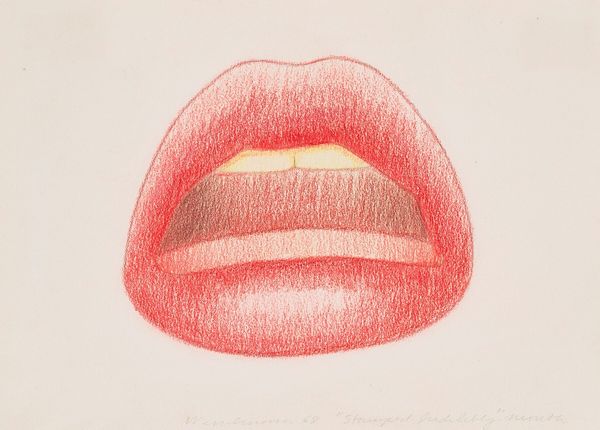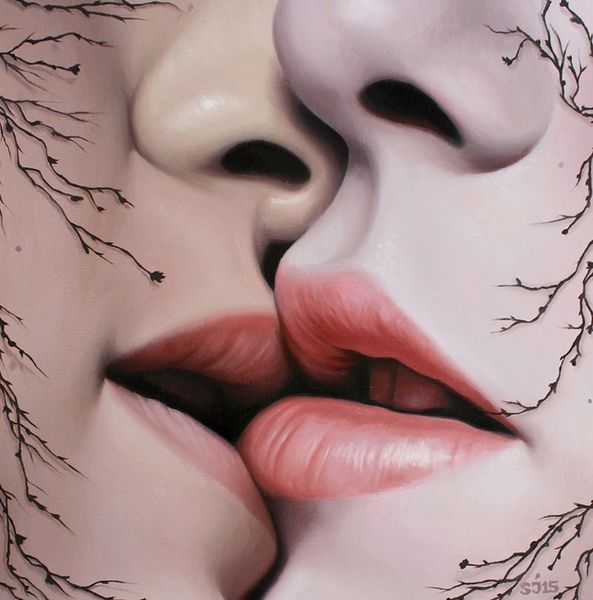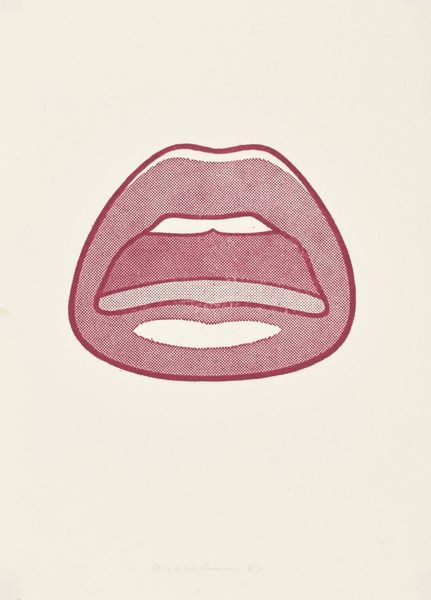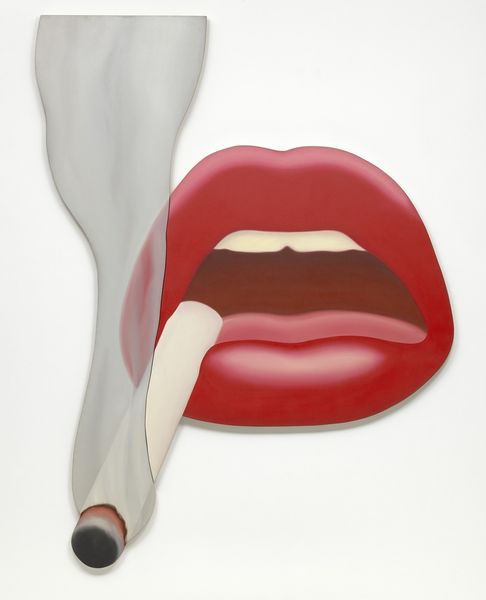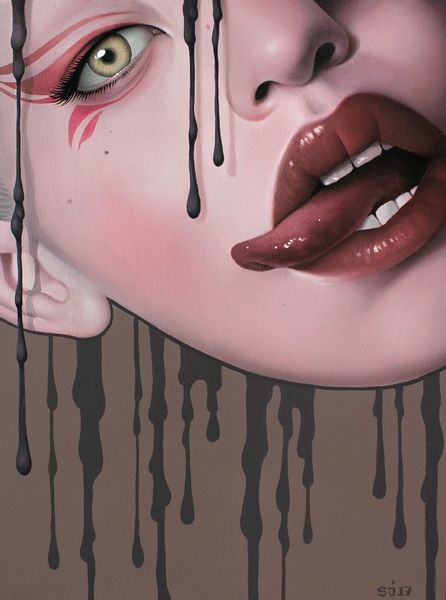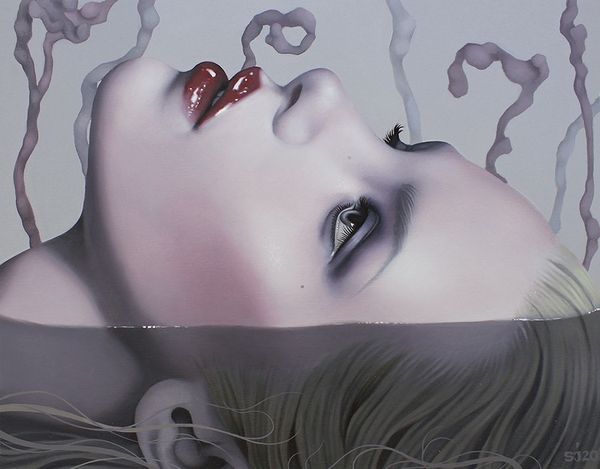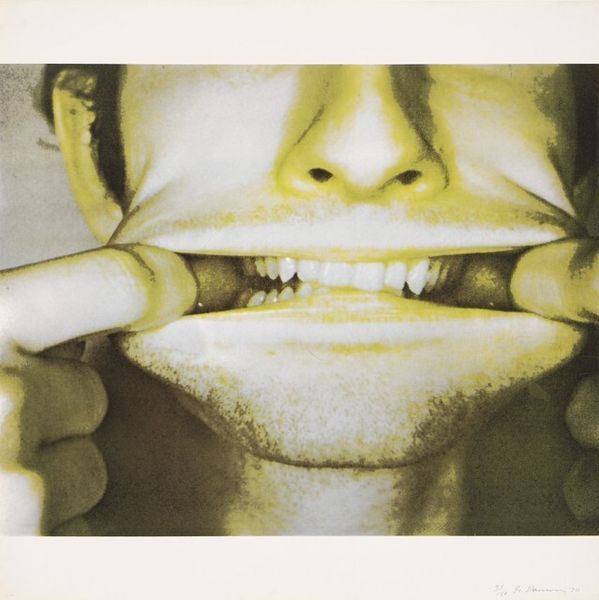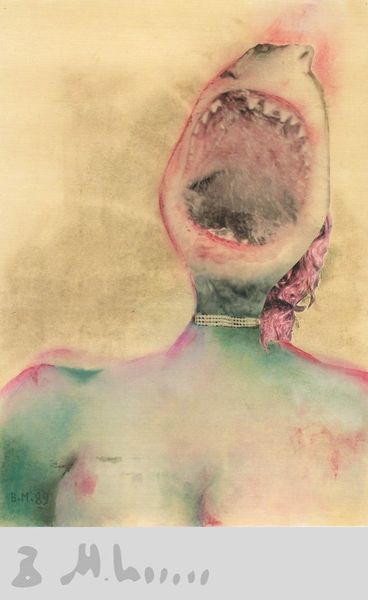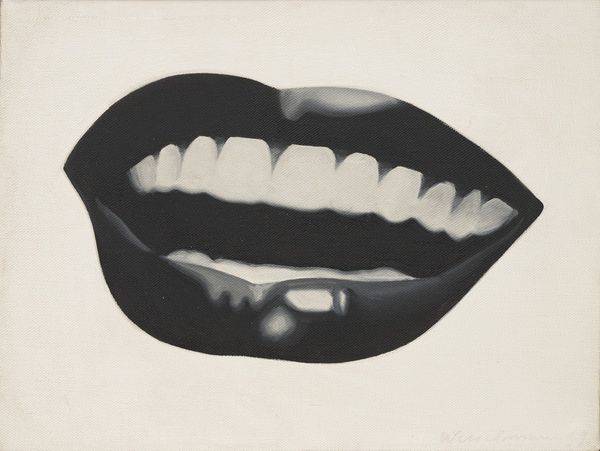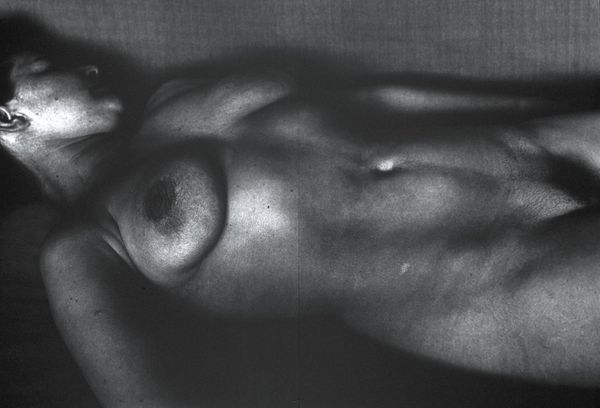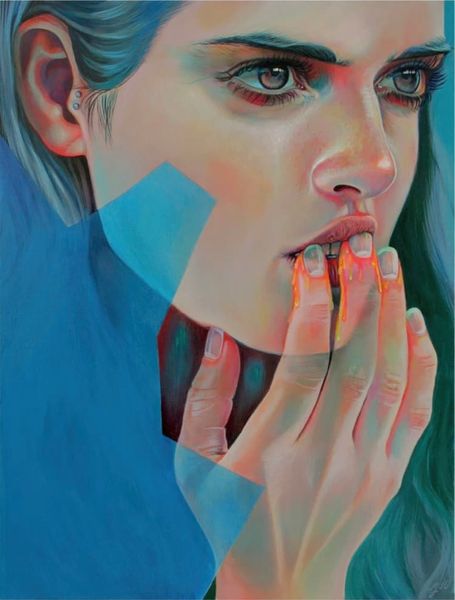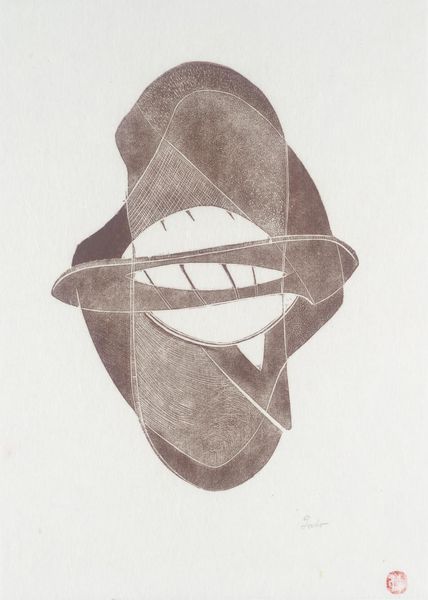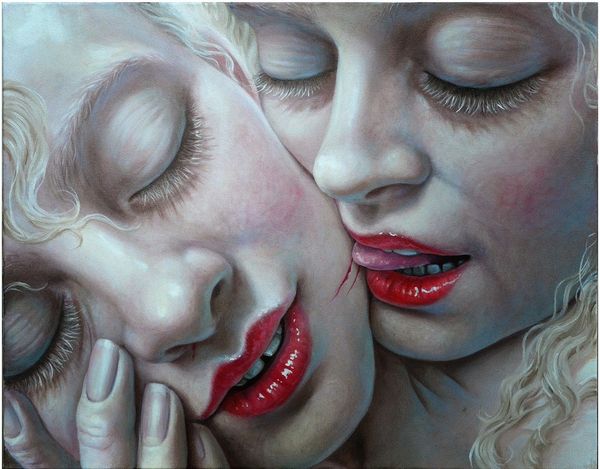
acrylic-paint
#
portrait
#
contemporary
#
acrylic
#
acrylic-paint
#
oil painting
#
portrait art
#
realism
Copyright: Catherine Murphy,Fair Use
Curator: Here we have Catherine Murphy’s "Persimmon," an acrylic on canvas completed in 1991. Editor: Woah, those lips. They're…monumental, almost unsettlingly so. It feels intensely personal, like an illicit peek. Is it just me, or is there something slightly…inflamed about the surrounding skin? Curator: It's definitely confrontational. Murphy is known for this unflinching realism. She zooms in on details, magnifying imperfections. There's an almost forensic quality, pushing the viewer to consider our often-sanitized ideas of beauty and representation. The hyperrealism forces us to face aging and the corporeal directly. Editor: I get that. But there's also a raw vulnerability that hits me hard. Like those details around the mouth - they're not imperfections, they're just…human. The choice of red is genius. At first you see allure, passion, but there is something about it that reminds me of a raw wound. I love that it works both ways. Curator: The public reception was certainly polarized at the time. Some praised Murphy's unflinching portrayal of the aging female body in defiance of traditional portraiture's obsession with idealization, while others critiqued what they saw as a grotesque and dehumanizing perspective. Consider that the social narratives around women and beauty in 1991 were vastly different. The politics of the female image were very heated, and she waded right in. Editor: Yeah, context is everything, isn’t it? Looking at it now, divorced from that initial controversy, it's less about a statement and more about the raw, visceral experience of seeing. There's this intense honesty… I'm strangely drawn to it. It is sort of cool how unflinching it is, now that you mention it. Curator: Ultimately, Murphy challenges us to question not just how we see, but why we see the way we do, which may be the ultimate political statement of the work. Editor: I think I just saw a portrait differently for the rest of my life. Thanks for that.
Comments
No comments
Be the first to comment and join the conversation on the ultimate creative platform.
